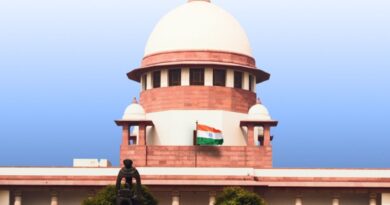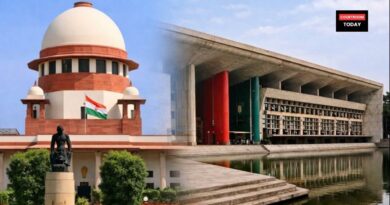NCLAT Refuses to Halt Aakash EGM; Says Byju’s Stake Value Depends on Subsidiary’s Survival
The National Company Law Appellate Tribunal (NCLAT), Chennai Bench, has refused to stop Aakash Educational Services Ltd. (AESL) from holding its extraordinary general meeting (EGM) scheduled on October 29 for a proposed rights issue.
The order came after GLAS Trust Company LLC, a US-based lender to Byju’s parent company Think & Learn Pvt Ltd (TLPL), filed a plea seeking to halt the meeting.
The tribunal observed that the value of Byju’s stake in Aakash cannot be protected if the subsidiary is commercially “killed”, and the Insolvency and Bankruptcy Code (IBC) aims to ensure that companies linked to an insolvent parent continue to thrive.
A Bench comprising Justice N Seshasayee and Technical Member Jatindranath Swain said the rights issue decision was connected to a Debenture Trust Deed (DTD) executed on April 25, 2023, long before Byju’s entered insolvency. Under that deed, Aakash had raised funds through debentures and amended its Articles of Association (AoA) to safeguard the interests of debenture holders.
The NCLAT noted that the proposed rights issue was a natural extension of those obligations and not a move meant to harm Byju’s or reduce its share value. It further clarified that the rights issue would not automatically dilute Byju’s 25.41% stake in Aakash. Instead, Byju’s had the option to buy additional shares and maintain its holding.
GLAS Trust, which holds 99.41% of the voting share in Byju’s Committee of Creditors, argued that Aakash’s board was trying to bypass the status quo order issued by the NCLT on March 27, 2025, which barred any dilution of Byju’s stake. It claimed that the rights issue would drain the company’s value and alleged collusion between Aakash’s management and Byju’s promoters.
Aakash, however, maintained that the move was an “existential compulsion” arising from the DTD. It explained that the debenture holders could take control or convert obligations into equity if defaults continued, and such clauses would be meaningless if Byju’s continued to interfere in Aakash’s operations.
After hearing both sides, the NCLAT held that GLAS Trust failed to prove the three necessary grounds for an interim stay — a prima facie case, irreparable harm, and balance of convenience.
The tribunal concluded that the IBC’s purpose is to maximise the value of the corporate debtor’s assets, but this does not mean that every company where the debtor holds shares must sacrifice its own commercial interests for the debtor’s benefit.
Stopping Aakash’s rights issue, it said, would harm not only Aakash’s growth but also the value of Byju’s stake in it.
Accordingly, the tribunal dismissed the plea filed by GLAS Trust Company LLC.
Case Title: GLAS Trust Company LLC vs. Shailendra Ajmera, RP of Think & Learn Pvt Ltd & Ors.





